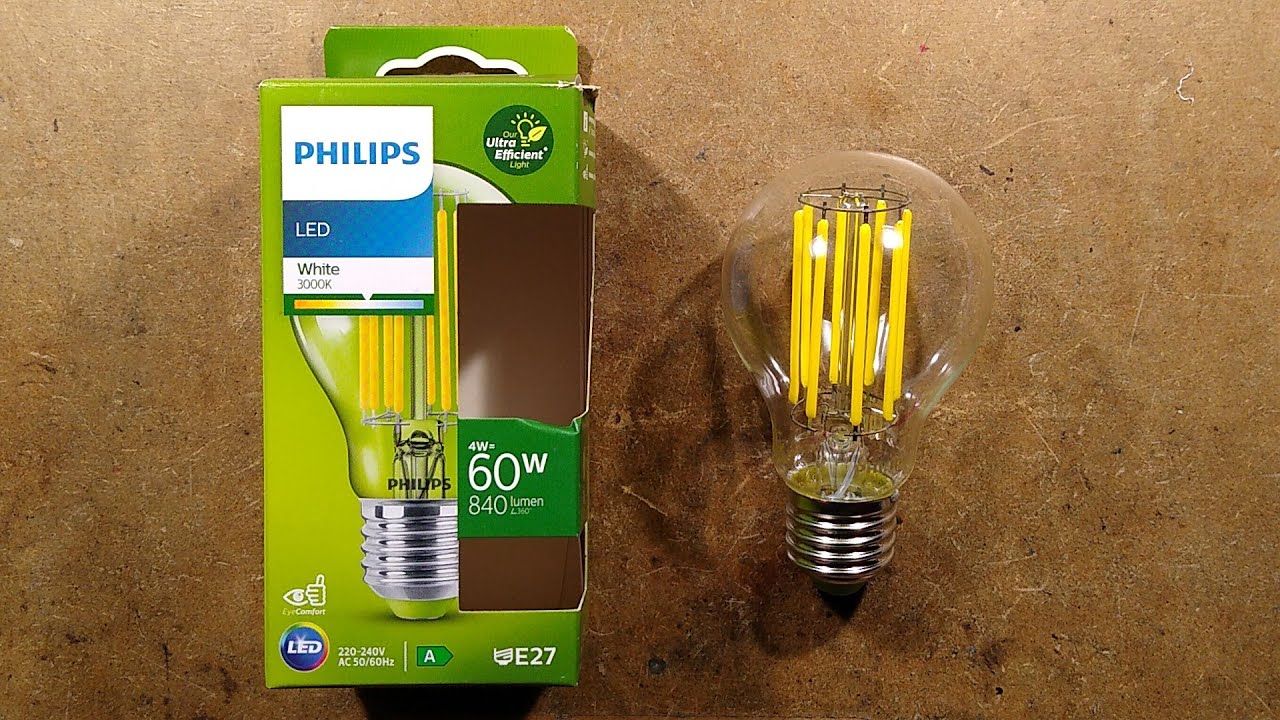Back on 2021-01-14, we discussed “LED Lamps from Dubai: They Leave the West Behind”, a range of LED lamps manufactured by Philips and sold only in Dubai, which use more LED chips run at lower current, resulting in greater efficiency (light output for electrical power consumed) and a dramatically increased lifetime, as the LED elements run much cooler, and heat is what kills LEDs. These lamps use a voltage regulation circuit which makes them immune to variations in power supply voltage and blips as loads change, and are free of flicker. They seemed to be an ideal alternative to Os-scam bulbs that usually last around three months before turning into disco strobes or going dark or even worse no-name Chinese junk.
Now Philips have introduced a line of “Ultra Efficient LED Bulbs” available in Europe which use the same strategy (more LED elements run at reduced current) to achieve a claimed lifetime of 45,000 hours, or 45 years assuming three hours per day of use and, at 840 lumens for 4 watts of power, use around 60% less electricity than regular LED bulbs. This comes at a price, of course: the bulbs are expensive at around £12 in the U.K., but the reduced energy consumption and aggravation of changing burned out bulbs may justify the premium.
In this video, Big Clive dismantles one of these bulbs and discovers that it uses a buck converter circuit instead of the linear regulator of the Dubai bulbs, which sounds like a move down-market, and also notes that the 3000° K colour temperature “warm white” bulb he tested had an odd greenish cast to the colour. He did not test the 4000° K cool white version, so we don’t know if its colour balance is similarly odd.
I am looking forward to trying out one of these when I can lay hands on one.
